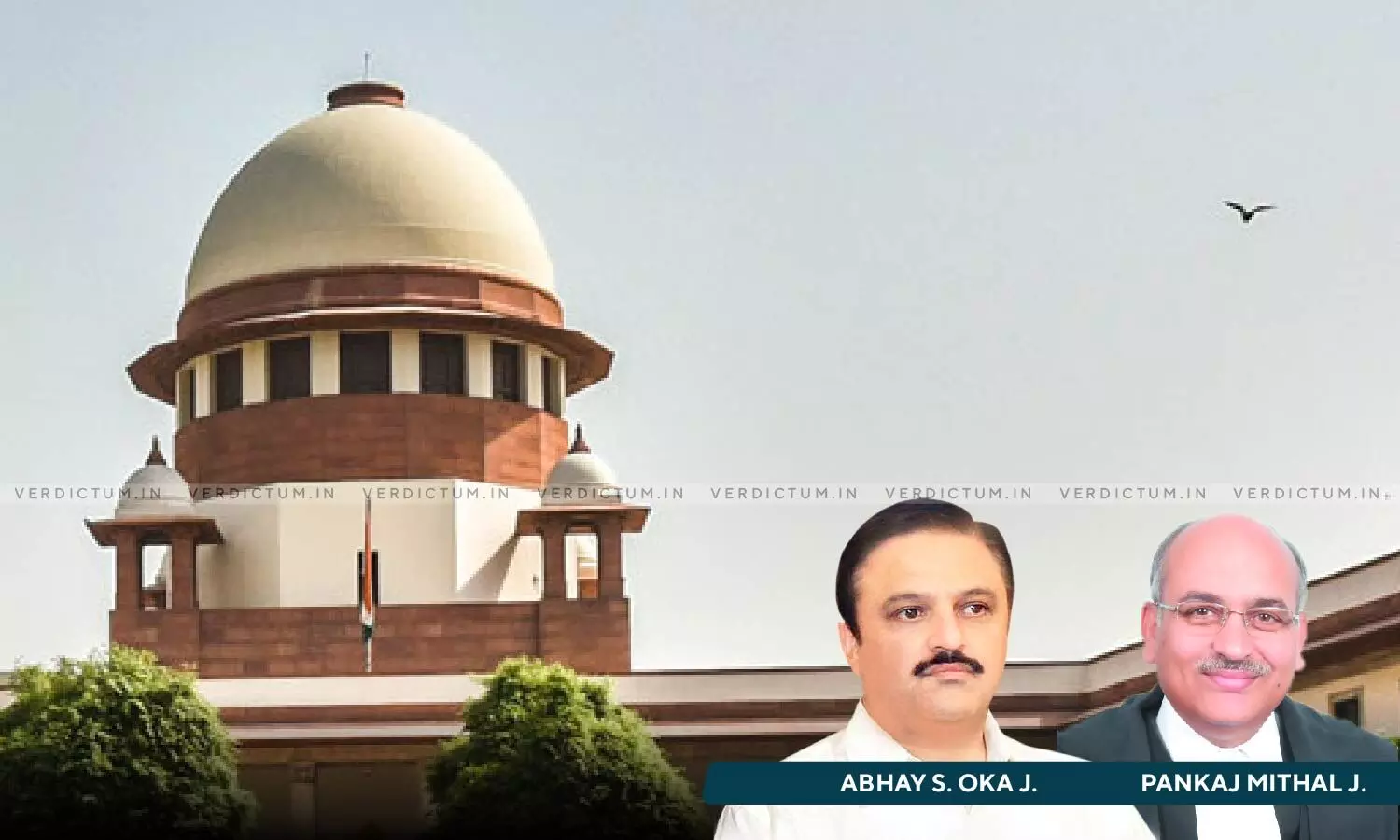
Mere Living In Particular House Wouldn't Mean That It Is Under Ownership Of Person Living Therein In His Individual Capacity- SC
 |
|The Supreme Court while validating a sale deed has observed that mere living in a particular house would not by itself mean that the said house is under ownership of the person who is living therein in his individual capacity.
The Court upheld the decision of the High Court validating a sale deed done in 1983 holding that the petitioner society failed to substantiate its claims of the deceased respondent's ownership of other property in the society's area of operation or any violation of sale deed conditions or society bye-laws. The challenge in these appeals was against the common judgment arising out of multiple writ petitions filed in the High Court based on similar facts.
A two-judge Bench of Justice Abhay S. Oka and Justice Pankaj Mithal held that the arbitrator's findings were insufficient to establish ownership of a house or property within the society's area of operation. The Court said, “However, such finding falls short of saying that the address at which he was living was a house which belonged to him or his family members as defined under the bye-laws or that his successors are the owners of the said house in their own capacity. Mere living in a particular house by itself would not mean that the said house is under ownership of the person living therein in his individual capacity or even that it is within the area of operation of the society.”
The petitioner society was formed under the U.P. Cooperative Societies Act, 1965. One of the present respondents (now deceased), was a member of this society. He was allotted a residential plot in 1983, and a sale deed was executed in his favor. The society's bye-laws stated that a plot could be allotted to a member who lived or wished to live in the society's area of operation and did not own any property there. He had provided an affidavit stating that he did not own any property in the society's area of operation, and based on this, he was allotted the plot.
Around 26 years later, the society referred the matter to an arbitrator regarding the price of the land sold through the 1983 sale deed. The society alleged that he had a personal house and did not need the plot, intending to sell it at a higher price. They claimed that he obtained the plot by furnishing a false affidavit and had not built on it within the stipulated time.
Advocate Tushar Bakshi appeared for the Appellants and Advocate Sharmila Upadhyay appeared for the Respondents.
He passed away in 1992, and his two sons, succeeded him as owners of the plot (present respondents). They contested the arbitration proceedings, arguing that the reference to the arbitrator was not valid under the U.P. Cooperative Societies Act, 1965. They also contended that they had met the society's requirements and should not have their sale deed canceled.
Despite these arguments, the arbitrator had declared the 1983 sale deed null and void in 2010. The arbitrator noted that the deceased repsondent provided an address where his successors still resided, and had not constructed anything on the plot despite having a sanctioned building plan.
The Court noted that an appeal against the arbitrator's decision was dismissed in 2011. Subsequently, the successors challenged the arbitrator's decision and the appellate order by filing a writ petition in the High Court. The High Court, after due consideration, had found that the society had failed to provide evidence to support its claims regarding their ownership of other land or a house in Agra and the violation of any sale deed conditions or society by-laws. Thus, it set aside the arbitrator's award and the appellate order, declaring the 1983 sale deed as valid.
The Supreme Court examined the relevant clauses (5(1) and 3(10)) of the society's bye-laws. Clause 5(1) stated that a member or their family member should not own any building or plot in the society's area of operation, while clause 3(10) defined "family" as including a husband, wife, and dependent/minor children.
The Court found that if deceased repondent or his family members owned property in the society's area of operation, he would not have been eligible for plot allotment under the society's bye-laws. However, the Court observed that the society had failed to provide any documentary evidence before the arbitrator to support its claims.
Additionally, the Court noted that the arbitrator's only finding was that he had given an address, where his successors resided. However, this finding did not establish ownership of the house or its location within the society's area of operation.
Accordingly, the Court dismissed the appeals.
Cause Title: Purushottam Bagh Sahkari Awas Samiti Ltd. v. Shobhan Pal Singh & Anr. Etc., [2023INSC789]